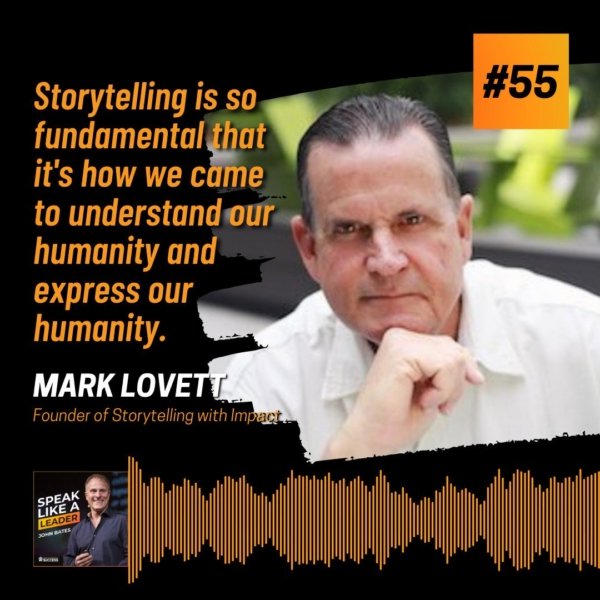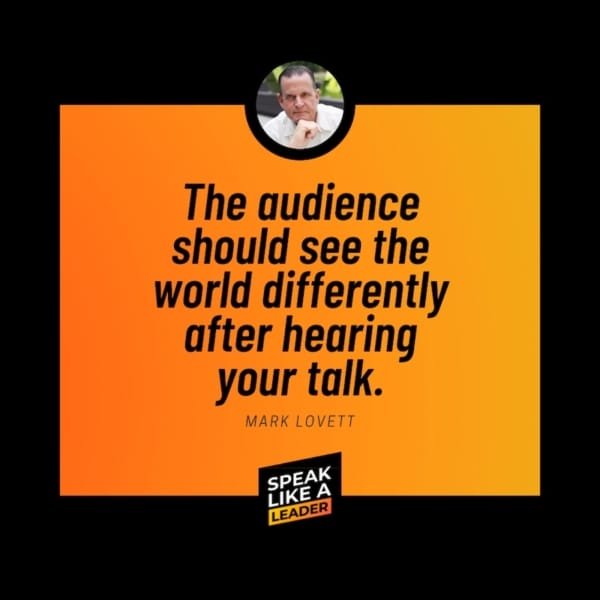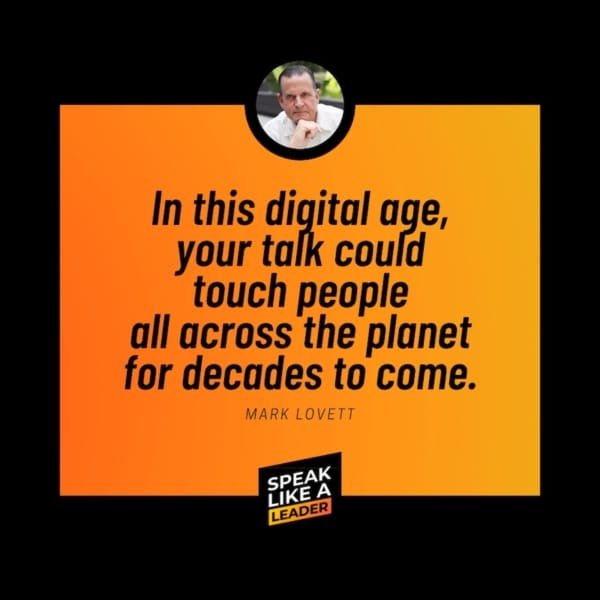Telling Stories About Storytelling
Most of my time is spent working with clients, helping them craft and deliver impactful talks, but once in a while I have the opportunity to hang out with a master storyteller and have an in-depth conversation on the art of storytelling. Such was the case when I was a guest on the Speak Like a Leader podcast, hosted by John Bates, the founder of Executive Speaking Success.
I met John back in my TEDx days, when I was organizing TEDxSanDiego and he was at the helm of TEDxSantaMonica, and our first conversation centered on what makes a good story. We’ve stayed connected over the years and still share a common passion for helping others uncover and tell their personal stories.

[listen to the entire podcast here or listen to an excerpt below]
Behind the scenes at a TEDx event
We started out talking about the TEDx world from the viewpoint of a TEDx organizer, and I shared the advice that I give to everyone who wants to be on a TED or TEDx stage – that your story should be based on your passion, on a topic that you’re speaking about or writing about on other platforms. The more you’re doing that, the more likely that an organizer will come across your work and think of you as a thought leader on the topic. John’s brilliant insight was that everyone should be living a TED-worthy life. Which is to say, you should be making a difference in the world regardless of whether you get on a TEDx stage.

What’s unique about you?
We also got into the nuts and bolts of storytelling, and the importance of your unique voice, your view of the world, and the way that can shift perspectives of people in the audience, teach them something, or expand their horizons. With the best TED and TEDx talks, I always think and feel a bit different after the talk concludes. What do listeners think and feel about your topic beforehand, and then after your talk? If there was no difference, then your talk had no impact.

We also addressed the issue of preparation, as this is one of the most frequently asked questions from potential speakers. How to get ready for the stage. You’ll hear many different opinions on the topic of memorizing, from those who believe in it, to those who avoid it. In working with hundreds of clients over the years, John and I have come to realize that each speaker is unique, and they need to figure out what works best for them.
Regardless of method, the key thing is to rehearse, and rehearse, and rehearse. You need to become very familiar with the points that you want to make during your talk. And a great way to do that is by rehearsing in front of friends or family who will give you honest feedback. Then go back and edit, and rehearse again.
There’s so much more that we covered during our hour together, and it was such an honor to spend time talking to John Bates about the magic of storytelling. So give this episode a listen, and then subscribe to the podcast to hear John interview a wide range of subject matter experts.
contact me to discuss your storytelling goals!
◆
Subscribe to our newsletter for the latest updates!
Copyright Storytelling with Impact – All rights reserved


